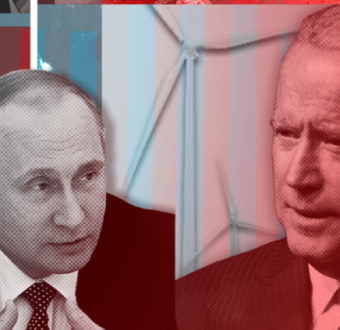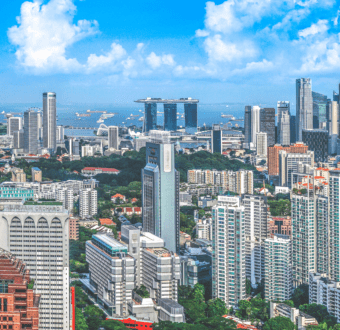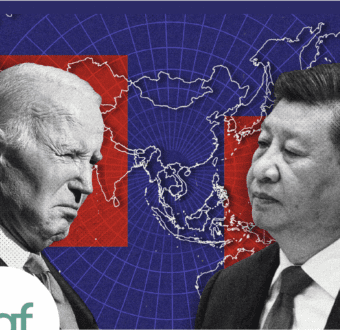US Industry can Save Congo’s Rainforest

Bidding on land leases is one way the US can save the rainforest and counter Chinese influence in Congo.
By Zuri Linetsky, Research Fellow
This article appeared in Inkstick on October 26, 2022
The Democratic Republic of Congo is accepting bids for leases to 30 blocks of some of the world’s most valuable land until February 2023 to open it up for oil and gas exploration. The land is a mix of lush green rainforest, peatlands, and mountains, and it’s the best carbon sink in the world. These lands absorb more carbon dioxide than they produce. The peatlands are about the size of the United Kingdom and have trapped an estimated 30 billion metric tons of carbon, about as much as the entire world emits in three years. At least two of the blocks for lease touch on one of the world’s last mountain gorilla sanctuaries in the Virunga National Park. Perhaps more critical for Congo, these blocks of land contain an estimated $650 billion in oil and gas, which will help diversify the DRC’s economy, moving it from near complete reliance on mining.
Congo, one of the poorest countries, is witnessing how Russia’s invasion of Ukraine is driving oil prices to an all-time high while forcing Europe to consider rationing oil and gas. And it is unswayed by the contradictions in the Global North’s position on fossil fuel production. Norway, which advocates for protecting rainforests, is expanding its oil production and is planning new offshore oil drilling operations. The United States continues to call for decreasing global reliance on fossil fuels, but President Joe Biden visited Saudi Arabia to plead for increased oil production. In addition, Biden’s bipartisan infrastructure deal allows for the sale of an estimated $6 billion in US oil reserves and weakens environmental oversight of oil and gas pipelines on federal lands.
Two major European oil and gas companies, Italy’s Eni and France’s TotalEnergies, have chosen not to bid in the auction, potentially because of public criticism from celebrities and climate activists demonstrating the costs of oil and gas exploration in the DRCs peatlands and rainforests. Congo will also accept bids from cryptocurrency and carbon capture companies. The Biden administration must participate in this auction with venture capitalists, American climate change philanthropies, and carbon capture firms. And the best way to do so is by forming a new public-private partnership through the Prosper Africa interagency initiative and leasing as many land blocks as possible.
The new National Security Strategy (NSS) emphasizes the urgent need to combat climate change and describes public-private partnerships as the most efficient way to do so. But public-private partnerships, like ones with carbon capture firms, require strategic public investment. This type of public-private partnership is important because the NSS embeds “climate change into the investment strategies of our development finance institutions.” It is also a credible commitment to climate security supporting US rhetoric about limiting African fossil fuel investment. As for competing with China, this approach helps close the gap in carbon capture technology investment between the United States and China. And it renews US influence in Congo while offsetting tumultuous Chinese influence.
Read more of Zuri’s contribution in Inkstick.

Written by Zuri Linetsky
Zuri is a research fellow with the Independent America project at the Institute for Global Affairs.
Read more from Zuri
This post is part of Independent America, a research program led out by Jonathan Guyer, which seeks to explore how US foreign policy could better be tailored to new global realities and to the preferences of American voters.










America Prepares for a Pacific War With China It Doesn’t Want